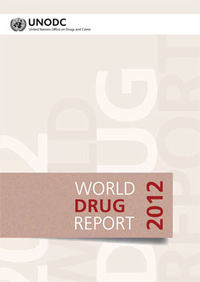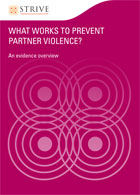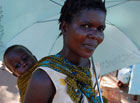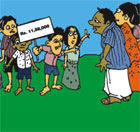Alcohol and drug problems
For many, consuming alcohol may seem an easy way to cope with everyday problems. That view is certainly reinforced by images in alcohol promotions that hammer home the notion that alcohol offers a taste of luxury, recreation, and entrée into a world free of everyday worries. Not so apparent are the myriad health and other problems created by alcohol use that impose additional burdens on poor people, generate substantial problems for society, and become onerous stumbling blocks for development.
GAPA submission in Health in the post 2015 Development Agenda
Alcohol: a key determinant for ill health and an obstacle to development
In the development goals that will follow the Millennium Development Goals alcohol needs to be addressed, says the Global Alcoholhol Policy Alliance. This is the topic of a paper contributed to the consultation by WHO and UNICEF on Health in the Post-2015 Development Agenda.
The Overlooked Obstacles for Achieving Millenium Development Goals
- At least five of the Millennium Development Goals are clearly affected by alcohol harm. The success of achieving them also depends on how alcohol’s role is addressed,” says Pubudu Sumanasekara in IOGT International on the International Day for the Eradication of Poverty.
New web site on alcohol and cancer
Experts have known since 1987 that alcohol can cause cancer, but the connection between the two is often unknown or ignored, both by the general public and by health professionals and NGOs. To compensate for this Eurocare and the Association of European Cancer Leagues have now launched a web resource on alcohol as a risk factor for cancer.
World Drug Report 2012
The World Drug Report provides an overview of recent trends and the drug situation in terms of production, trafficking and consumption of illegal drugs. The 2012 edition concludes with both stability and worrying trends in the global drug scene.
New report on intimate partner violence and alcohol use
A new evidence overview points at excessive alcohol consumption as one the key drivers behind intimate partner violence. The report is written by senior lecturer Lori Heise at the London School of Hygiene and Tropical Medicine.
African women are non-drinkers
81 per cent of African women report themselves to be non-drinkers, says data from the World Health Surveys. This is an important fact to take into account in planning of alcohol prevention strategies and policies.
Fetal alcohol syndrome: Dashed hopes, damaged lives
“He asks me why I drank so much while I was expecting him. I don’t really have answers for him”, says South African mother Marion Williams in a recent article of the WHO Bulletin. She lost two of her children in child birth.
New manual for community involvement from CWC, India
Children as agents of change
Children can make a real difference in their communities. A new manual on rights-based research from Concerned for Working Children (CWC) in Bangalore, India shows how children can be empowered to influence their community and also local alcohol policies.
Health versus profits:
Conflict over liquor sachets in Malawi
Malawi now experiences a conflict over liquor sachets. Government and NGOs versus alcohol producers. Health versus profits. Also other countries in Africa face problems with the small plastic bags with strong liquor.
New WHO report confirms
Alcohol kills more people globally than HIV/AIDS
The 2011 edition of the Global status report on alcohol and health confirms that alcohol is a major threat to global public health and welfare. Drinking alcohol kills more people than HIV/AIDS, tuberculosis or violence.








